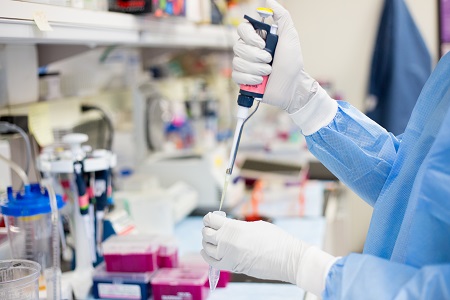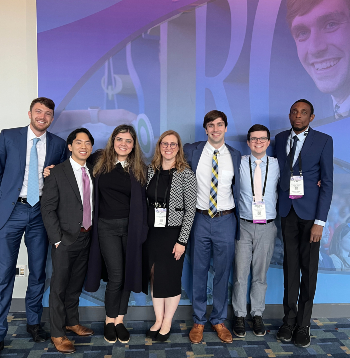 We want our residents to pursue their passions, and have a well-rounded program environment that fosters their interests throughout their training so they can graduate and go on to have an impact in all aspects of healthcare. We offer 10 dedicated months of professional development time with the option to extend up to 12 months as part of PGY-4. This may be used for clinical or basic research or for other professional pursuits including furthering clinical skills in oncology or related fields, such as palliative care or radiopharmaceuticals. It can also be used for growing professional skills such as leadership, health management or epidemiology/public health.
We want our residents to pursue their passions, and have a well-rounded program environment that fosters their interests throughout their training so they can graduate and go on to have an impact in all aspects of healthcare. We offer 10 dedicated months of professional development time with the option to extend up to 12 months as part of PGY-4. This may be used for clinical or basic research or for other professional pursuits including furthering clinical skills in oncology or related fields, such as palliative care or radiopharmaceuticals. It can also be used for growing professional skills such as leadership, health management or epidemiology/public health.
For those individuals who are interested in research there are a number of available opportunities. These may be pursued throughout the course of the four-year program.
The University of Maryland ranks in the top tier of state-funded schools for research grants. Our residents have the opportunity to participate in research activities both within the Department of Radiation Oncology as well as collaborative projects with affiliated departments throughout the university and the School of Medicine.
Each resident is required to complete a research project during their residency training, and most residents participate in multiple research projects throughout their training. Our faculty are committed to assisting residents in all aspects of research and all of our residents have successfully presented their work at national meetings of professional societies.
We have a unique system of mentoring which includes quarterly brainstorming sessions for new projects to help foster cross-divisional collaboration. We provide outstanding biostatistics support, and technical writing and editing assistance. We have a dedicated committee of faculty experts who meet with our residents in advance, review their proposed projects, help identify any potential roadblocks, and provide any connections or assistance needed to help our residents achieve maximum success.
In addition to a myriad clinical of research opportunities, trainees have the opportunity to conduct research in the areas of physics and radiobiology. For example, FLASH therapy, an ultra-high dose rate cancer treatment, is currently being tested in basic and translational research at the University of Maryland. Currently, one of the department's LINAC machines is both FLASH (electrons) capable and research dedicated.
For more information about research opportunities, please visit the Division of Medical Physics and Division of Translational Radiation Sciences (DTRS) pages.
Past Resident Publications and presentations
The residents meet quarterly in a roundtable format with a group of senior faculty members to review and facilitate research projects, and receive feedback on existing research for publication and meeting submissions.
See a sample list of Resident Publications and our list of annual ASTRO Annual Meeting presentations.

